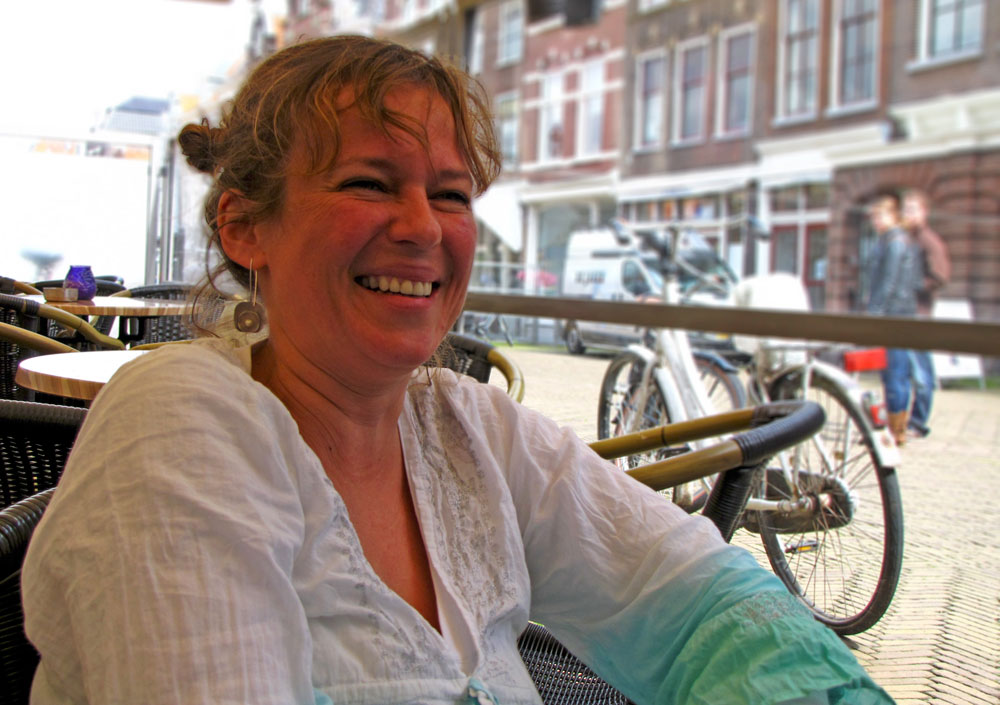Theatre and acting classes can offer technical students great benefits in their private lives and careers, says Claudia Nagaro, a theatre teacher at TU Delft’s Cultural Centre
Claudia Nagaro, originally from Peru, has taught theatre classes at TU Delft since 2008. After some experience directing plays and television back in Peru, Nagaro came to study theatre in Utrecht in 1997. Her most recent play, ‘Humpty Dumpty Sat on a Wall’, a composition of four plays in the absurdist style, premiered at the Cultural Centre last week.
Who are your inspirations?
“I’m immensely inspired by Tom Stoppard, the English playwright, and Dries Verhoeven, from the Dutch theatre scene. I’m inspired by Stoppard’s view of the ridiculousness of life and Dries’ quirky world view.”
Describe your experience of teaching theatre to TU Delft students?
“I’ve found many students who are very shy and reserved, not confident, as compared to the ones who come to study in a theatre school, who are an arrogant lot. In a way, I prefer a blank slate, students who don’t carry any baggage, so that I can fill them with a passion for theatre. The students and I have a very non-student-teacher relationship, and we create plays together. I’ve made friends for life with students here, and have so many good memories of teaching the TU’s very receptive students. I’d say I actually prefer technical students to theatre students.”
What is your approach to teaching students with little experience and from different cultural backgrounds?
“Again, most students who come to learn aren’t very confident, but very much open to change and learning. They’re forced to get out of their comfort zone, and they grow with the production. The cultural diversity is something I really love about working with TU Delft students. Each one has different strengths, eccentricities, accents and dynamics, which is what ultimately makes the characters and the play itself.”
Can theatre lessons benefit students in their daily lives and careers?
“Of course. I had a student who participated in my productions come up to me and thank me for the confidence the classes instilled in him for talking at conferences with a live audience. Most students come in very meek and shy, and I’ve seen real transformations into powerful actors and confident people in their daily lives.”
How can the TU’s Culture Centre better benefit from the great influx of international students from so many different cultures?
“The Culture Centre could invest more in keeping such activities alive and tap into this multicultural aspect of TU Delft students. There’s a huge international community here and there should be more activities and events for them. The Culture Centre could for example also pay the teachers better, so to retain them and improve the standard of the activities they organize. My contract ends this month, and I won’t be back to teach at TU Delft in September. I hope the theatre courses don’t die out with my exit.”
What is the potential for multi-cultural, English-language plays in the Dutch theatre scene?
“Sadly, the Dutch theatre scene is saturated with boring Dutch plays for the elite. This needs to change. Writers need to write for the common people, embrace the multiculturalism, multilingualism of today and adapt to this. There are few theatre groups which do plays in English in the Netherlands today. For example, the theatre group I’m working with right now, ‘Medea 78’, is producing a multicultural play that hardly sold in the Netherlands, but is sold out for our tour in Germany next month.”
Claudia Nagaro can be reached at c.nagaro@gmail.com



Comments are closed.